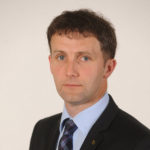Scottish Government Refuses Spycops Inquiry

Michael Matheson MSP: Spineless betrayal
The Scottish government has said there will be no Scottish inquiry into the political undercover policing scandal.
The announcement by Justice Secretary Michael Matheson came hours after he finally published a report into undercover policing in Scotland.
The review had been conducted by HM Inspectorate of Constabulary in Scotland. It had been boycotted by victims as HMICS is a body drawn from the police, including officers personally connected to political spying.
SPYCOPS IN SCOTLAND
When then-Home secretary Theresa May ordered an inquiry into undercover political policing in 2014, many were shocked to see it would only be allowed to examine events in England and Wales. A large proportion of the spycops worked beyond those borders. With only 10% of them exposed, we could list seventeen different countries spied in over a period of 25 years.
These are not suggestions or allegations. It is a plain, established fact that numerous officers were in Scotland including many furthering their sexual relationships with women they spied on. Some came on political actions, other on holidays to deepen the relationships. Carlo Neri was living with Andrea in London but repeatedly came to Scotland to integrate into her family.
This is something the police concede is an abuse of police power and a violation of the human rights to a private life and to freedom from torture, inhuman or degrading treatment.
The Scottish government emphatically agreed. Backed by every party in Holyrood, they formally asked to be included in the Undercover Policing Inquiry. The Home Office refused.
In asking for inclusion, the Scottish government were declaring that these acts warranted a public inquiry. That makes today’s refusal by Michael Matheson not just a betrayal of abused citizens but an act of personal and institutional hypocrisy.
DON’T LISTEN TO VICTIMS
Today’s HMICS report devotes most of its space to describing conte mporary undercover policing in the broad sense. Only four of its 62 pages are devoted to the political spycops whose abuses triggered the report to be commissioned in the first place.
mporary undercover policing in the broad sense. Only four of its 62 pages are devoted to the political spycops whose abuses triggered the report to be commissioned in the first place.
It admits that records are incomplete, and thus implicitly admits we cannot know the truth without the testimony of witnesses. It has not spoken to any victims, and Matheson’s contact is scarcely better, limited to half an hour’s meeting at which he gave no concession.
The HMICS report doesn’t consider any events before 2000, event though we know officers were in Scotland before then, and the Special Demonstration Squad had been active since 1968. This omits periods of intense police activity against political campaigns, such as the 1984-85 miners’ strike.
Matheson’s decision is a spineless abdication of responsibility and an affront to justice. It is a brazen, shameless U-turn that serves to protect yesterday’s abusers and thereby embolden tomorrow’s. He is choosing to cover up the counter-democratic undermining of political campaigns in Scotland.
This is certainly not the first time spycops victims have had obstacles thrown in their path by the state, but we had expected more from someone who had consistently said that it warranted the fullest level of investigation.
He has decided not to let Scottish people know what was done to them, whilst the English are entitled to answers. The fight is far from over.
LEGAL AID FIGHT
Spied-upon activist Tilly Gifford has already brought the Scottish and UK governments to court over the decision to exclude Scotland from the public inquiry. The Scottish Legal Aid Board refused to fund the case, saying it had no merit – even though a similar case in Northern Ireland is going ahead.
Gifford crowdfunded the money, and courts said the case did, after all, have merit and should proceed. The Scottish Legal Aid Board then moved the goalposts, saying they still wouldn’t fund the case as they felt it was unlikely to succeed.
It’s hard to see this as anything other than political interference, something of a piece with today’s decision not to investigate the known, sustained, strategic serious abuse of citizens in Scotland.
You can add your voice to the clamour for justice by demanding Matheson investigate the Scottish Legal Aid Board’s decisions – the Haldane Society of Socialist Lawyers have set up a handy online form with suggested text.
As The Scotsman said in May 2017
‘those spied on by police in Scotland face the prospect of being the only ones unable to get accountability for what happened to them.
‘Scotland cannot be left behind. Should the English inquiry not be extended north of the Border, then Scottish ministers must act to fill the void.’
